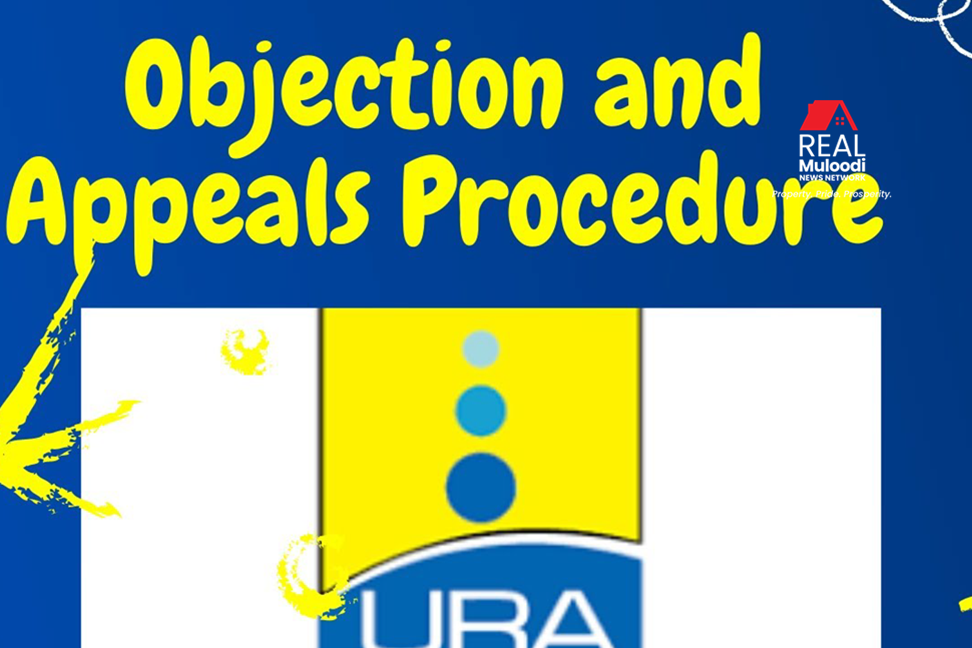UGANDA, Kampala | Real Muloodi News | Tax disputes can be a challenging ordeal for any taxpayer, but particularly for landlords who are currently being targeted by the Uganda Revenue Authority (URA) and find themselves with unexpected tax proceedings being raised against them.
URA has recently stepped up its efforts to actively identify and pursue landlords who are non-compliant with their rental income tax obligations, now that the taxman is armed with its Rental Tax Compliance System (rTCS). rTCS consolidates and analyzes data from 6 government agencies to determine rental income tax compliance. This has left many landlords caught unaware and scrambling.
Rita L. Zabali, the Tax Manager at Ernst & Young Uganda, sheds light on the tax appeal proceedings in Uganda and offers valuable insights for individuals or businesses looking to challenge decisions made by the URA.
Understanding the Objection and Appeals Procedures
In Uganda, taxpayers who find themselves dissatisfied with a tax decision made by the URA have the right to challenge it through the established objection and appeals procedures as outlined in tax laws.
These procedures are designed to provide a fair and transparent process for addressing tax disputes.
The initial step for a taxpayer seeking to dispute a tax decision is to file an objection with the Commissioner General of the URA. This objection should be submitted within 45 days from the date of receiving notice of the tax decision.
The objection needs to be submitted using the prescribed form, which is currently available online. It should clearly state the grounds for objection and provide sufficient evidence to support the claim.
It is important to keep in mind that now that URA is equipped with its sophisticated intelligence tool known as the Rental Tax Compliance System, the tax authority is armed with a significant amount of evidence regarding property ownership, rental income, and utility usage proving occupancy. In addition, tenants are increasingly cashing in as informants for reporting non-compliant landlords to URA. Therefore, it is important that landlords ensure their evidence is legitimate, as penalty for lying to URA is now USh110m.
Exploring Alternative Dispute Resolution (ADR)
Alternatively, if a taxpayer is dissatisfied with a tax decision, they can opt to use Alternative Dispute Resolution (ADR) procedures within seven days of being served with the tax decision.
Similar to the objection process, the ADR application should be submitted using the prescribed form and substantiated by supporting evidence.
Throughout the entire tax dispute resolution process, the burden of proof typically falls on the taxpayer. This means that the taxpayer must provide evidence to support their objection or appeal.
It’s essential to demonstrate that the tax decision made by the Commissioner was erroneous and should, therefore, be modified or revoked upon appeal.
Amendments to the Tax Procedures Code Act
Effective from July 1, 2023, the Tax Procedures Code Act, 2014 (TPCA) underwent amendments that impose restrictions on the information that can be used to substantiate a taxpayer’s objection or ADR proceedings.
Essentially, only information provided by the taxpayer to the URA during the audit process can be used for this purpose.
However, there is an exception to this restriction. If the information requested by the URA relates to a period more than three years from the document’s authorship date or beyond the past three financial years, the restriction does not apply.
Potential Implications and Mitigation Strategies
This amendment underscores the importance of providing comprehensive information during tax audits.
Failing to do so can limit the value that tax professionals, including lawyers and tax accountants, can bring to the objection, appeals, or alternative dispute resolution processes.
To mitigate these risks, taxpayers should establish efficient communication channels within their organizations to ensure that URA correspondences are promptly forwarded to the appropriate personnel for action.
Group email registrations on the URA portal can help disseminate important information in real time.
Additionally, taxpayers should engage proactively with URA audit personnel to seek extensions when necessary and ensure that all required documentation is submitted during the audit stage.
Confirmation of document receipt is crucial to avoid misunderstandings.
Understanding and navigating tax appeal proceedings in Uganda requires vigilance, proactive communication, and adherence to evolving tax regulations.
Taxpayers should stay informed about legal amendments and work closely with tax professionals to ensure a smooth and successful resolution of tax disputes.
READ MORE LIKE THIS:
URA Mandates E-receipts for City Landlords to Tackle Tax Evasion



